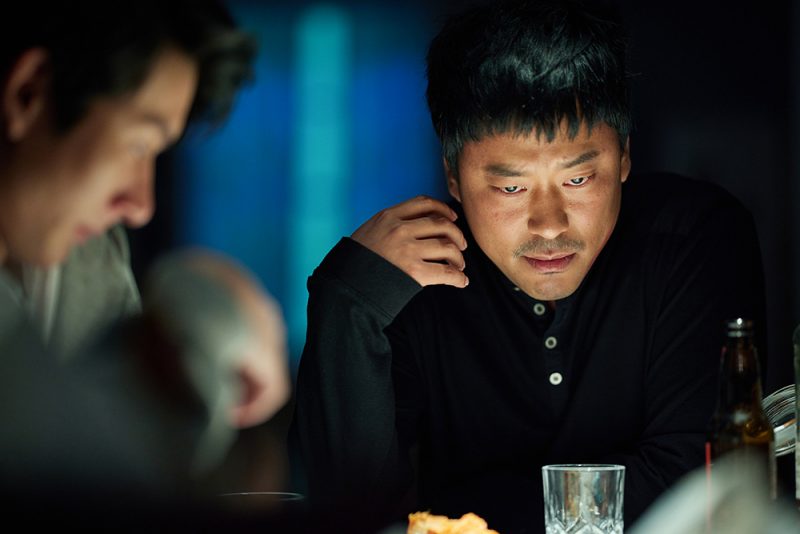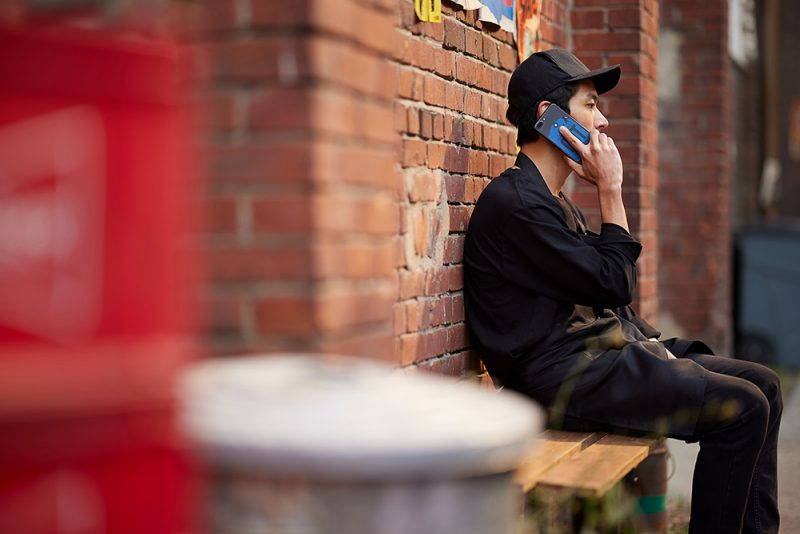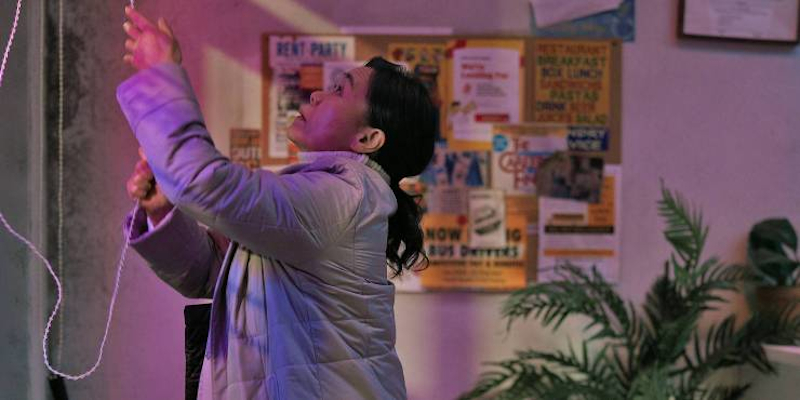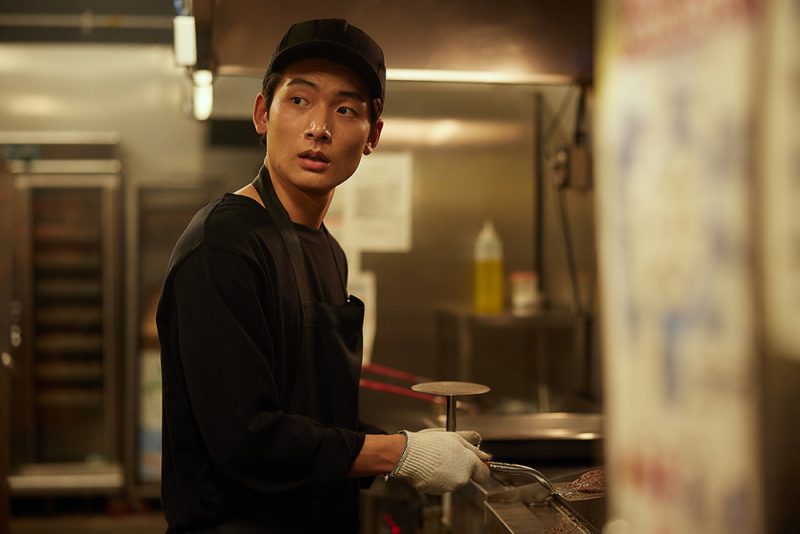Director – Chang Hang-jun – 2022 – US, South Korea – Cert. 15 – 72m
*****
Serial bad decisions in five reverse chronology episodes of a New Jersey, Korean migrant family’s life suggest terrible consequences – from LKFF, the London Korean Film Festival 2023 which runs in cinemas from Thursday, November 2nd to Thursday, November 16th
Chi-hoon (Seo Young-joo from The Age Of Shadows, Kim Ji-Woon, 2016; Moebius, Kim Ki-duk, 2013) drives over to the house of his sister and brother-in-law Moon-suk (Lee Soon-won). Moon-suk is alone, and invites him in, digging out a bottle of whiskey and the best food that can be eaten with it, kimchi. In the ensuing conversation, as the pair get more and more inebriated, various unpleasant family truths emerge. Their mother has severe health issues, the couple are in financial trouble, and Moon-suk casts doubt on his wife’s character, suggesting that she’s not the good person her brother believes her to be and accusing her of wanting to murder their mum.

However, Chi-hoon has a different agenda: he wants to know why Moon-suk has been regularly hitting his sister. At one point, Moon-suk goes into the bedroom, retrieves a revolver and hides it on his person. Later, Chi-hoon goes to the bathroom where he spends an inordinate amount of time and, looking around, eyes up pairs of scissors in the bathroom cabinet, the division between its reflecting mirror doors bisecting his face, as if he were torn apart.
That pretty much covers the first of five chapters, which play out in reverse chronological order. The remaining four show how their family arrived at that point via Chi-hoon at his restaurant kitchen job taking a lengthy phone call from his traumatised sister, Moon-suk and wife Yoon-ju (Kim Soo-jin, finally appearing on the screen) discussing their failing liquor store business which seemed such a sure thing and his mother’s failing health, Moon-suk’s night visit to the Dry Cleaning shop run by his mother (Kang Ae-sim) – who puts in a surprise appearance – and an incident involving a shooting during an armed robbery by a lone gunman (Daniel Joey Albright from Road To Boston, Kang Je-kyu, 2023; Train To Busan Presents: Peninsular, Yeon Sang-ho, 2020; Default, Choi Kook-hee, 2018; A Taxi Driver, Jang Hun, 2017), and, finally, a scene earlier still wherein Yoon-ju goes completely psychotic about a trivial household issue before concealing this trait when Moon-suk, with whom she’s not yet involved but clearly fancies, turns up to give Chi-hoon a guitar lesson just as Yoon-ju is going out the door.

It may be much shorter than your average, contemporary Korean movie – these days, they tend to clock in at two hours or more – but the script, with direction, cinematography and pacing to match, is lean and taut. After the leisurely opening minute, in which Chi-Hoon drives through New Jersey at night, not a moment is wasted, and the revelations come thick and fast.
As it takes in debt problems, exacerbated by a business about to collapse due to cash flow issues and an ailing matriarch in need of (what in the US healthcare system, God help them, is) costly healthcare, and a marriage in which the two partners are at each other’s throats, it pictures the American dream of self-betterment gone horribly wrong.
A welcome addition both to the reverse chronology genre (Irreversible, Gaspar Noé, 2002; Memento, Christopher Nolan, 2000; Peppermint Candy, Lee Chang-dong, 1999) and the Korean-American movie that has become a popular US subgenre in recent years (Past Lives, Celing Song, 2022; Minari, Lee Isaac Chung, 2020; Lucky Grandma, Sasie Sealy, 2019). In terms of the latter, it’s something of a coup as the first film in that genre this writer has seen which both subtitles the Korean dialogue into English and the English dialogue into Korean, rendering such prints viable in both English- and Korean-speaking territories.

Moreover, this is at once a thriller yet not a thriller, a family drama which feels more like a crime movie, a bleak vision in which, just when you think things couldn’t get any worse, they do, over and over again. An essay on doors opening and closing, changing the course of people’s lives. Whatever the film is – and, to my mind, it defies easy categorisation – it’s cleverly and beautifully put together, gripping throughout and will have you constantly on the edge of your seat. And deserving of much wider distribution than one screening in a festival.
Open the Door plays in LKFF, the London Korean Film Festival 2023 which runs in cinemas from Thursday, November 2nd to Thursday, November 16th.
Trailer:

